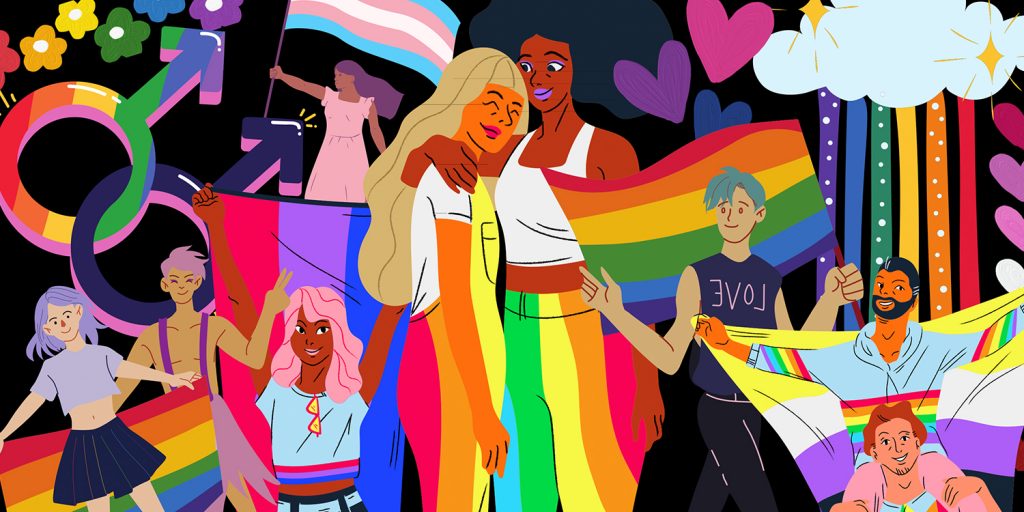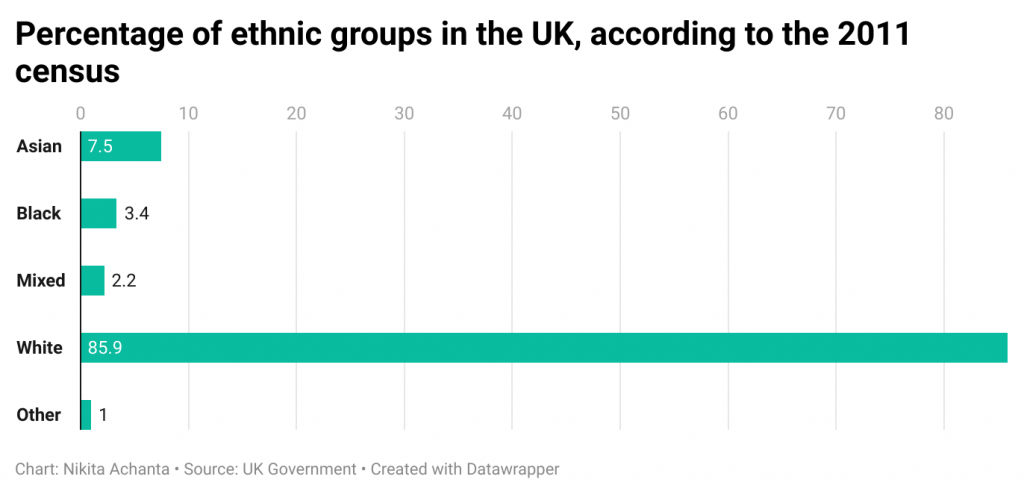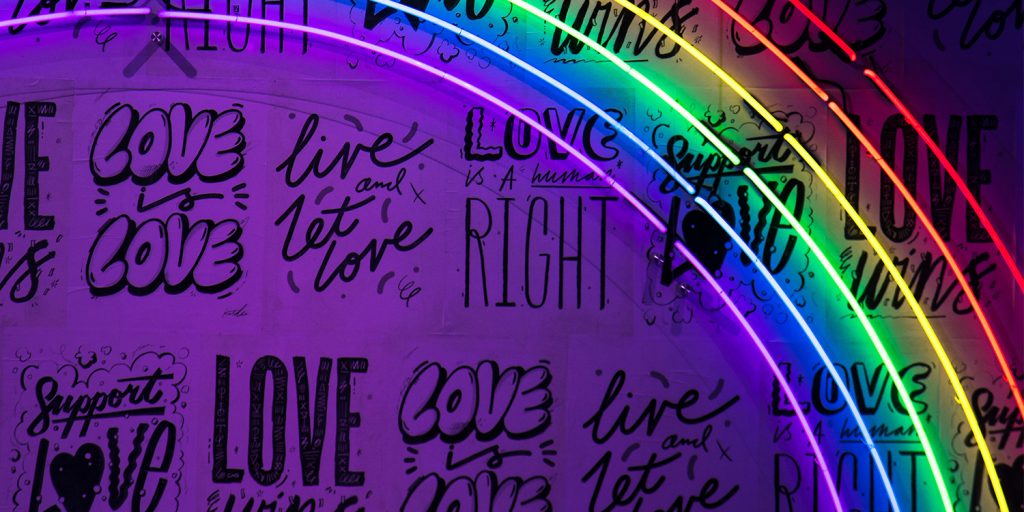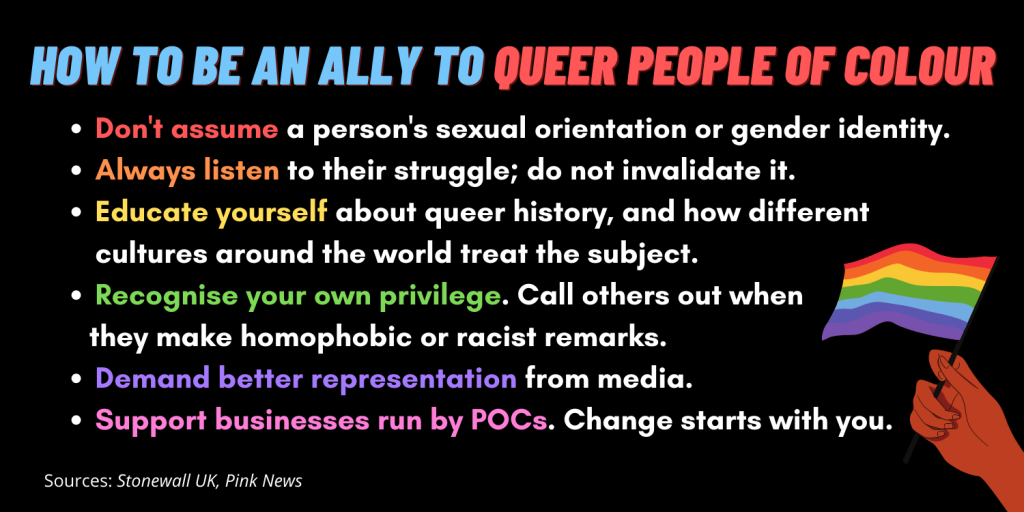Three Cardiff-based organisations are seeking an end to homophobia against LGBTQ+ people of colour who move to the UK

Booking your flight tickets, packing your bags, and grabbing a coffee at the airport as you get ready to board the plane to a country where your dreams will come true is exciting. Moving countries for education, work, or to start a new life can be daunting. But what brings you hope and joy is the freedom you, a queer person, will have to finally be yourself.
That is how it can feel to come from a country where same-sex relationships are outlawed. There are 69 countries that still criminalise homosexuality, according to The International Lesbian, Gay, Bisexual, Trans and Intersex Association. In England and Wales, homosexuality was legalised in 1967.
England and Wales are home to 56.1 million people, as per the 2011 census. When it comes to identifying as LGBTQ+, the Office of National Statistics reports that 2.7% of the adult UK population does so.

While there are no clear numbers presented by the government on the homophobia faced by black, Asian, and minority ethnic groups, the intersectionality of race and sexual identity cannot be overlooked. The problem worsens for those moving countries, with the added stress of building a new home.

The question remains: can anyone help?
For those who move from countries where they are persecuted for their sexuality, it still is not easy. Aaron*, a scientist who moved to Cardiff from the Philippines, has lived in the UK since he was six.
The country is far from being safe for queer and trans people
Yan White
Aaron, who identifies as bisexual, says, “I have heard the classic ‘but you are confused and are going to end up gay soon’ phrase, not only from heterosexual people, but also from the queer community.”
He believes that it not only encourages the erasure of bisexuals from the narrative, but targets the niche group of bisexual men, thereby increasing the rates of stigma within society.
However, he has been grateful for the support he has received from his friends, and a group chat called “Queers in Cardiff”. The latter has allowed him to meet and share his experiences with other queer people.
Above: This map can be used to track safe spaces for queer people of colour, including the organisations mentioned in this feature. Credit: Nikita Achanta
Seeking support elsewhere
According to the 2021 UK Black Pride Survey, only 25% of respondents felt that queer spaces were welcoming for people of colour. This number is concerning as, in comparison, 67% of white LGBTQ+ individuals felt these spaces were comforting.
But all hope is not lost. South Wales is home to grassroots organisations that have been working towards achieving equality for people of colour of all sexual identities. Culturally diverse communities can seek help or share their experiences of homophobia at local safe spaces.
Learn more about being a better ally here
Race Council Cymru is one of them. The organisation focuses on combating racial prejudice, victimisation, and violence in Wales, while offering mental health advice. Director Kay Denyer explains the number of ethnic minorities who have approached the organisation over the past three years is approximately 2,000. With regard to having experienced homophobia, five people under the age of 30 have reported it to the organisation.
The Black Pride Survey also states that, based on their ethnicity, 49% of the Asian respondents have experienced some form of discrimination or harassment in LGBTQ+ spaces. It is, therefore, not surprising that ethnic minorities are more anxious about freely expressing their sexual identity, as Kay concurs.
Being open could subject them to conversion therapy, rape and imprisonment
Ele Hicks
Another organisation that promotes equality for all, Diverse Cymru, agrees. Policy, engagement and research manager Ele Hicks notes that many refugees and asylum seekers are fleeing because of threats of violence based on their sexuality.
Ele commented, “They come from backgrounds where being open could subject them to conversion therapy, so-called corrective rape, and imprisonment.”
The times they are a-changin’
Where does change then begin? According to Kay, “Education and accurate information taught widely in all schools and better representation across media can help make the UK a safer place for [people of colour] to express their identity.”
The Queer Emporium, on the other hand, believes the country has a “really long way to go” when it comes to eliminating homophobia and transphobia against people of colour. “The country is far from being safe for queer and trans people,” said the founder and manager, Yan White.
Located on St. Mary’s Street, the shop provides a space to several minority sellers and artists to showcase their work.
“The emporium reflects the wider part of the LGBTQ+ community, across the UK and particularly in Cardiff,” Yan commented, “We have quite a lot of visits from BAME people, and from refugees as well. But I have heard many stories of queer people from different backgrounds experiencing homophobia locally.”
As for Diverse Cymru, Ele emphasises on the need to ensure that people are not split into individual characteristics. “As a society, we focus on race separately to sexuality,” Ele continued, “This approach means that solutions only work for people with one characteristic, not several.”
The organisation provides mental health support for black, Asian, and minority ethnic groups, and also to “refugees and asylum seekers due to the trauma they are fleeing,” she said.
While they do not run services specifically for refugees and asylum seekers, Ele recommends the Trinity Centre, Oasis Cardiff, and Glitter Cymru.
Long road ahead
It is time to end homophobia and bring an end to hate crimes against people of colour. The feeling of home can be attained only when one is truly safe. The voices of black, Asian, and minority ethnic groups must be amplified. Messages must be tailored for different communities and be accessible in multiple languages.
It is time the United Kingdom stood true to its name.

*Names have been changed to protect the identity of the sources
